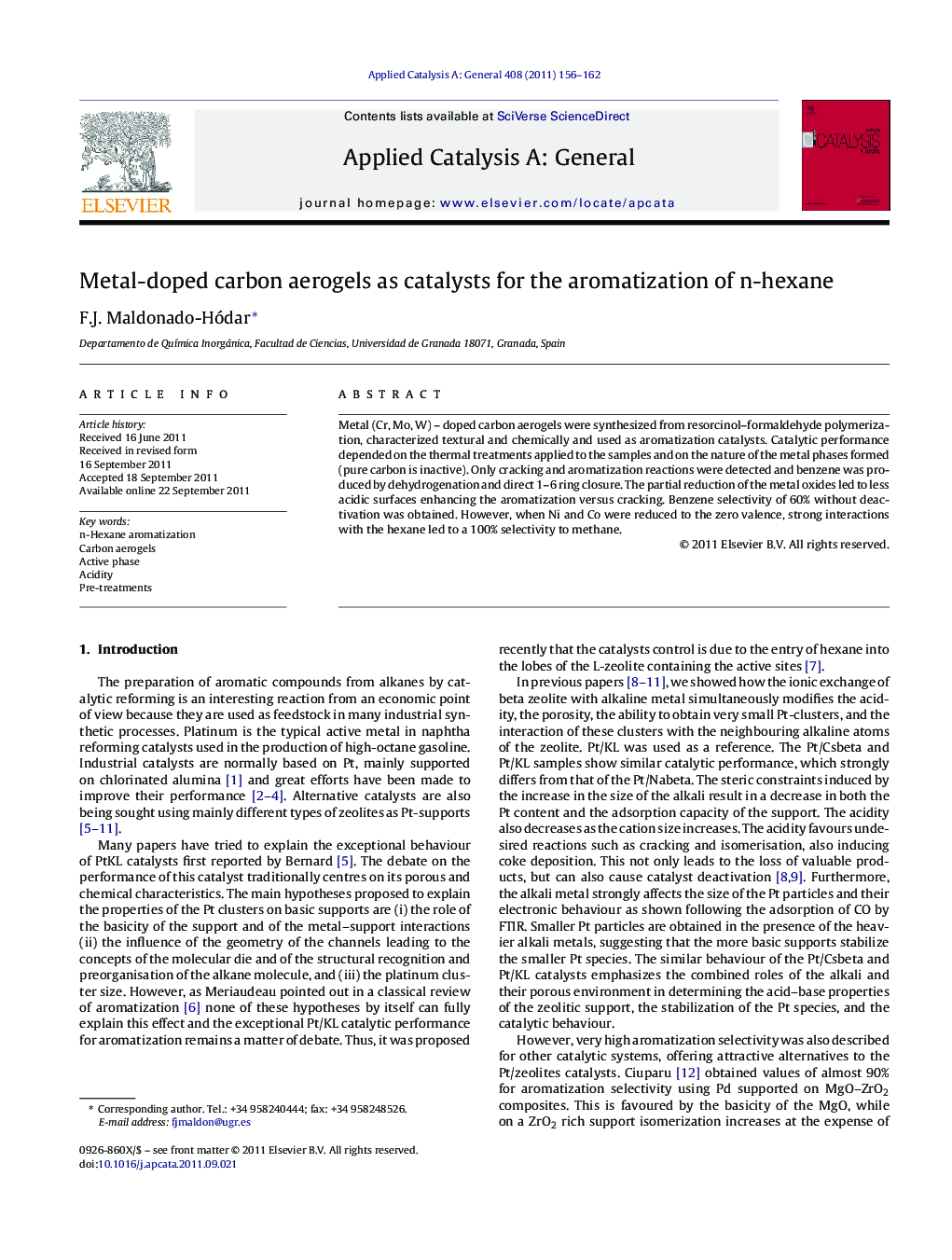| Article ID | Journal | Published Year | Pages | File Type |
|---|---|---|---|---|
| 41210 | Applied Catalysis A: General | 2011 | 7 Pages |
sMetal (Cr, Mo, W) – doped carbon aerogels were synthesized from resorcinol–formaldehyde polymerization, characterized textural and chemically and used as aromatization catalysts. Catalytic performance depended on the thermal treatments applied to the samples and on the nature of the metal phases formed (pure carbon is inactive). Only cracking and aromatization reactions were detected and benzene was produced by dehydrogenation and direct 1–6 ring closure. The partial reduction of the metal oxides led to less acidic surfaces enhancing the aromatization versus cracking. Benzene selectivity of 60% without deactivation was obtained. However, when Ni and Co were reduced to the zero valence, strong interactions with the hexane led to a 100% selectivity to methane.
Graphical abstractFigure optionsDownload full-size imageDownload high-quality image (141 K)Download as PowerPoint slideHighlights► The porosity of the carbon and the chemical nature of the metals can be adjusted. ► The aromatization ability of composites is regulated by the distribution of acid sites. ► The catalysts showed high selectivity and stability. ► The catalytic performance is enhanced by the interaction between phases.
